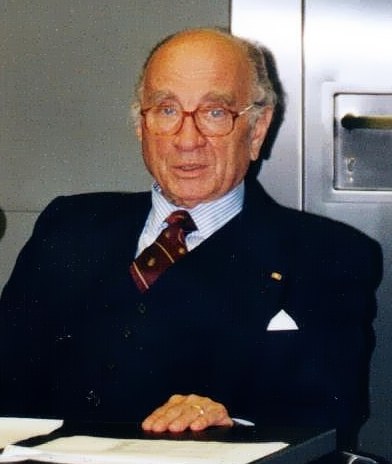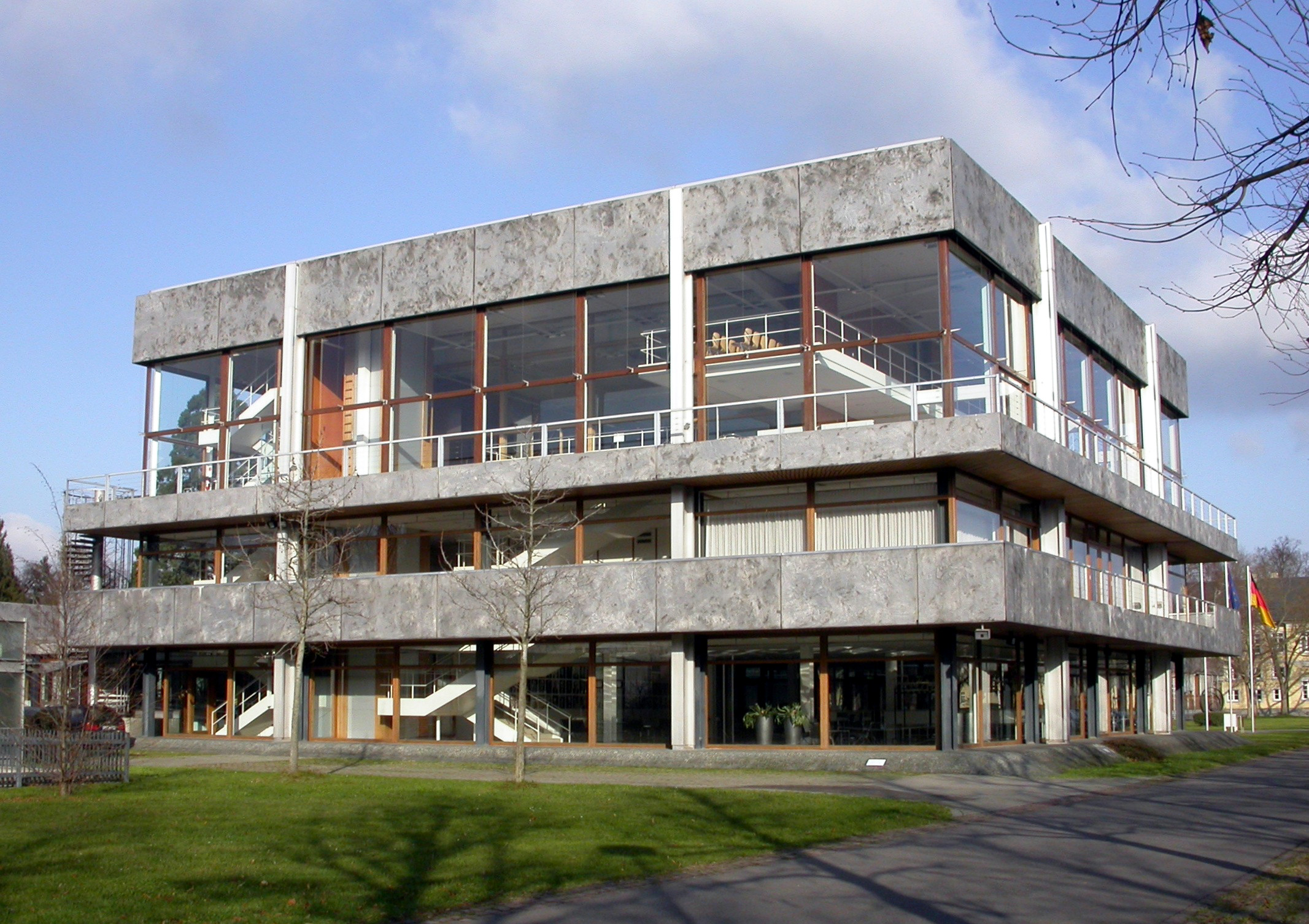|
1983 German Federal Election
Federal elections were held in West Germany on 6 March 1983 to elect the members of the 10th Bundestag. The CDU/CSU alliance led by Helmut Kohl remained the largest faction in parliament, with Kohl remaining Chancellor. Issues and campaign The SPD/ FDP coalition under Chancellor Helmut Schmidt was returned to power in the 1980 West German federal election. The coalition parties grew more and more apart over economic policies. Schmidt asked for and won a motion of no confidence on 5 February 1982. The FDP cabinet ministers resigned on 17 September 1982 and the SPD formed a minority government. On 1 October, Schmidt and the SPD government were dismissed from office by a constructive vote of no confidence by the votes of the CDU/CSU Union parties and a majority of the FDP deputies in the Bundestag. The Leader of the Christian Democratic Union and Leader of the CDU/CSU Group in the Bundestag Helmut Kohl succeeded Schmidt. The new coalition had a majority in the Bundestag but early e ... [...More Info...] [...Related Items...] OR: [Wikipedia] [Google] [Baidu] |
Bundestag
The Bundestag (, "Federal Diet") is the German federal parliament. It is the only federal representative body that is directly elected by the German people. It is comparable to the United States House of Representatives or the House of Commons of the United Kingdom. The Bundestag was established by Title III of the Basic Law for the Federal Republic of Germany (, ) in 1949 as one of the legislative bodies of Germany and thus it is the historical successor to the earlier Reichstag. The members of the Bundestag are representatives of the German people as a whole, are not bound by any orders or instructions and are only accountable to their electorate. The minimum legal number of members of the Bundestag (german: link=no, Mitglieder des Bundestages) is 598; however, due to the system of overhang and leveling seats the current 20th Bundestag has a total of 736 members, making it the largest Bundestag to date and the largest freely elected national parliamentary chamber in the wo ... [...More Info...] [...Related Items...] OR: [Wikipedia] [Google] [Baidu] |
Motion Of No Confidence
A motion of no confidence, also variously called a vote of no confidence, no-confidence motion, motion of confidence, or vote of confidence, is a statement or vote about whether a person in a position of responsibility like in government or management is still deemed fit to hold that position, such as because they are inadequate in some aspect, fail to carry out their obligations, or make decisions that other members feel to be detrimental. The parliamentary motion demonstrates to the head of government that the elected Parliament either has or no longer has confidence in one or more members of the appointed government. In some countries, a no-confidence motion being passed against an individual minister requires the minister to resign. In most cases, if the minister in question is the premier, all other ministers must also resign. A censure motion is different from a no-confidence motion. Depending on the constitution of the body concerned, "no confidence" may lead to the dism ... [...More Info...] [...Related Items...] OR: [Wikipedia] [Google] [Baidu] |
Bundestag 1983
The Bundestag (, "Federal Diet") is the German federal parliament. It is the only federal representative body that is directly elected by the German people. It is comparable to the United States House of Representatives or the House of Commons of the United Kingdom. The Bundestag was established by Title III of the Basic Law for the Federal Republic of Germany (, ) in 1949 as one of the legislative bodies of Germany and thus it is the historical successor to the earlier Reichstag. The members of the Bundestag are representatives of the German people as a whole, are not bound by any orders or instructions and are only accountable to their electorate. The minimum legal number of members of the Bundestag (german: link=no, Mitglieder des Bundestages) is 598; however, due to the system of overhang and leveling seats the current 20th Bundestag has a total of 736 members, making it the largest Bundestag to date and the largest freely elected national parliamentary chamber in the wor ... [...More Info...] [...Related Items...] OR: [Wikipedia] [Google] [Baidu] |
NATO Double-Track Decision
The NATO Double-Track Decision was the decision by NATO from December 12, 1979 to offer the Warsaw Pact a mutual limitation of medium-range ballistic missiles and intermediate-range ballistic missiles. It was combined with a threat by NATO to deploy more medium-range nuclear weapons in Western Europe after the Euromissile Crisis. Background The détente between the United States and the Soviet Union culminated in the signing of SALT I (1972) and the negotiations toward SALT II (1979). The agreements placed constraints on further developments in nuclear capacities. The SALT agreements were not intended to be considered a form of mutual arms control but merely referred to strategic carrier systems and their warheads, which did not include any tactical nuclear weapons such as nuclear bombs delivered by bombers or midrange missiles ( MRBMs and IRBMs). Decision The decision was prompted by the continuing military buildup of Warsaw Pact countries, particularly their growing c ... [...More Info...] [...Related Items...] OR: [Wikipedia] [Google] [Baidu] |
Bonn
The federal city of Bonn ( lat, Bonna) is a city on the banks of the Rhine in the German state of North Rhine-Westphalia, with a population of over 300,000. About south-southeast of Cologne, Bonn is in the southernmost part of the Rhine-Ruhr region, Germany's largest metropolitan area, with over 11 million inhabitants. It is a university city and the birthplace of Ludwig van Beethoven. Founded in the 1st century BC as a Roman settlement in the province Germania Inferior, Bonn is one of Germany's oldest cities. It was the capital city of the Electorate of Cologne from 1597 to 1794, and residence of the Archbishops and Prince-electors of Cologne. From 1949 to 1990, Bonn was the capital of West Germany, and Germany's present constitution, the Basic Law, was declared in the city in 1949. The era when Bonn served as the capital of West Germany is referred to by historians as the Bonn Republic. From 1990 to 1999, Bonn served as the seat of government – but no longer capital – ... [...More Info...] [...Related Items...] OR: [Wikipedia] [Google] [Baidu] |
Ingrid Matthäus-Maier
Ingrid Matthäus-Maier (born 9 September 1945 in Werlte) is a German politician of the Social Democratic Party of Germany (SPD). Life In her childhood she lived in Mülheim and went to school in Duisburg. Since 1969 she was a member of JungdemokratInnen/Junge Linke. Matthäus-Maier studied in Gießen and in Münster German law. From 1976 to 1999 Matthäus-Maier was a member of the German Bundestag. First she was a member of German politician party FDP. In 1982, she changed to German party SPD. After she left the Bundestag, Matthäus-Maier became a member of the Board of directors at Kreditanstalt für Wiederaufbau The KfW, which together with its subsidiaries DEG, KfW IPEX-Bank and FuB forms the KfW Bankengruppe ("banking group"), is a German state-owned investment and development bank, based in Frankfurt. As of 2014, it is the world's largest national d ... (KfW). She is married with mathematician Robert Maier and has two sons. References External links * I ... [...More Info...] [...Related Items...] OR: [Wikipedia] [Google] [Baidu] |
Günter Verheugen
Günter Verheugen (born 28 April 1944) is a German politician who served as European Commissioner for Enlargement from 1999 to 2004, and then as European Commissioner for Enterprise and Industry from 2004 to 2010. He was also one of five vice presidents of the 27-member Barroso Commission (Barroso I). After his retirement, he is now honorary Professor at the European University Viadrina in Frankfurt (Oder). Early life and education Born at Bad Kreuznach in Rhineland-Palatinate, Verheugen studied history, sociology and political science at the University of Cologne and at the University of Bonn. Career Political career Verheugen was Secretary General of the Free Democratic Party of Germany (FDP) from 1978 to 1982, under the leadership of the party's chairman Hans-Dietrich Genscher. He left the FDP with many left liberal party members in 1982, because the FDP left the government of Chancellor Helmut Schmidt. In the same year, he joined the Social Democratic Party of Germany ( ... [...More Info...] [...Related Items...] OR: [Wikipedia] [Google] [Baidu] |
Gerhart Baum
Gerhart Rudolf Baum (born 28 October 1932) is a German politician of the Free Democratic Party (FDP) and a lawyer. Early life and education Gerhart Baum was born to a German father and a Russian mother. His paternal ancestors, whose roots lay in Plauen in the Saxon Vogtland, originally worked as craftsmen before later generations were able to pursue academic professions. His mother was born in Moscow; her own mother was from Łódź and of Polish ethnicity and her Ukrainian-born father was originally from Kharkiv. In 1917, her family had fled from Russia to Germany as a result of the October Revolution. In his childhood Baum was a forced member of the Hitler Youth. After the bombing of Dresden, his mother left the city in February 1945 and fled with her three children to Lake Tegernsee in Bavaria. His father, who had fought on the Eastern Front during the war, was captured by the Soviets and later died in captivity. In 1950, Baum's family moved to Cologne. After graduating fro ... [...More Info...] [...Related Items...] OR: [Wikipedia] [Google] [Baidu] |
Otto Graf Lambsdorff
Otto Friedrich Wilhelm Freiherr von der Wenge Graf Lambsdorff, known as Otto Graf Lambsdorff (20 December 1926 – 5 December 2009), was a German politician of the Free Democratic Party (FDP). Early life and education Lambsdorff was born in Aachen (Rhineland) to Herbert Graf Lambsdorff and Eva, ''née'' Schmidt. He attended school in Berlin and Brandenburg an der Havel and became an officer cadet in the Wehrmacht in 1944. In April 1945 he was severely wounded in an Allied strafing attack and lost his lower left leg. Lambsdorff was a prisoner of war until 1946. After World War II he passed his Abitur and studied law at the Universities of Bonn and Cologne where he obtained a PhD. Political career In 1951, Lambsdorff became a member of the liberal FDP, and from 1972 to 1998 he represented this party in the Federal parliament, the ''Bundestag''. Within and outside his party he was known as a representative of the market liberals; a mocking name was ''der Marktgraf'' (" ... [...More Info...] [...Related Items...] OR: [Wikipedia] [Google] [Baidu] |
Federal Constitutional Court
The Federal Constitutional Court (german: link=no, Bundesverfassungsgericht ; abbreviated: ) is the supreme constitutional court for the Federal Republic of Germany, established by the constitution or Basic Law () of Germany. Since its inception with the beginning of the post-World War II republic, the court has been located in the city of Karlsruhe, which is also the seat of the Federal Court of Justice. The main task of the Federal Constitutional Court is judicial review, and it may declare legislation unconstitutional, thus rendering them ineffective. In this respect, it is similar to other supreme courts with judicial review powers, yet the court possesses a number of additional powers and is regarded as among the most interventionist and powerful national courts in the world. Unlike other supreme courts, the constitutional court is not an integral stage of the judicial or appeals process (aside from cases concerning constitutional or public international law), and doe ... [...More Info...] [...Related Items...] OR: [Wikipedia] [Google] [Baidu] |




